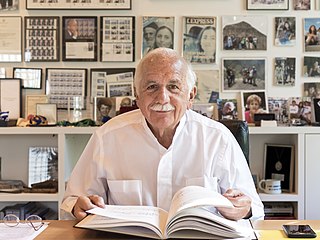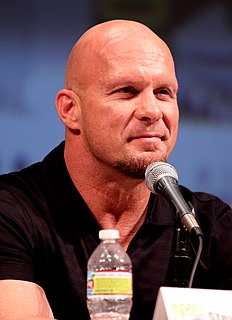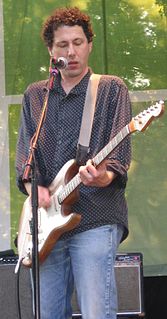A Quote by Alain de Botton
Trying to be a sort of intellectual in the public arena is very irritating to people. They think, 'Why is this bugger on television?'
Quote Topics
Related Quotes
Opera on television in Europe is very important. If you think about it in the broadest sense: a lot of the dramas made in India with music are practically operas. They're not sung but they have a very big appeal. I don't know why American television people are so stupid but at the moment, they just seem to have some sort of a block. They just do what they do and they do it for a certain number of years. Then it wears out and they try something else. It's just a matter of time I think.
People have no idea what it's like to be that person in the arena. I know, no offense, but a lot of people on television, talking heads and analysts and consultants and strategists and they all have their opinions and they tell what a candidate ought to do, what he should have done, what he could have done. But they've never been in at arena.
It's [Into the Badlands] something that's very, very different and I think that's why it divided critics initially because they didn't understand it or get it. They didn't understand or have a knowledge of what we were trying to do. Bringing in the Asian martial arts aesthetic to American television. For us, these are the people who will make the show a hit or a failure in future seasons. So it's for us to respect them and interact and see what they have to say.
In the 1960s, various parts of the population became energized and began to enter the public arena to call for the rights of women, students, young people, old people, farmers and workers. What are called "special interests" - meaning the whole population - they began to press to enter the public arena. And they said that puts too much pressure on the state and therefore we have to have more moderation in democracy and they should go back and be quiet and obedient.
I think the record-buying public know what they like, and when people are trying to pander to them, I think they know it. They want the genuine article, so if we try to sort of "dumb down" for the mass public, I think they're too smart for that, and would recognize us as fakes. It seems like the bands that do crossover do so really on their own terms, and they just find that their terms just kind of make a big dove-tail with the masses.
There are those superstars who refuse to give anything of themselves to the public except what they see on-screen. In movies and on records, it's easy to insulate one's self from the public; that's why I think I wouldn't care to be a television performer, particularly in the States, where TV stardom is so intimate.
You know, almost everyone is an irritant to me. I think people have forgotten what the word 'public' means. 'Public' means you're going to be irritated. It's a natural consequence of leaving one's home. You go outside, and there are people who are irritating. I'll be standing on the sidewalk, and someone berates me for smoking. I look at the person and think, but what about your shoes? How can you wear shoes like that and have the confidence to accost someone like me?






































